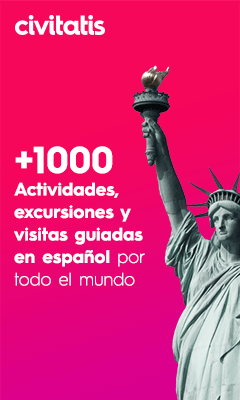Everything you always wanted to know about working onboard cruise ships
“Discover exotic places while you work”, “this is the only job where you actually are on holiday”. With this tempting phrases, working on cruise ships and traveling the world while you save money turns into a very attractive idea. The requirements are: speak a high level of English, experience in the field you are applying for, and be able to do a six to eight-month contract. What they don’t tell you is the kind of pressure you will have to deal with.
Generally speaking, cruise lines use small worldwide agencies to select their personnel. First, you have to send an e-mail with your CV in English and a picture ID. If you are chosen, you step into the next phase. You will have an interview with someone from the agency, probably a former crew member.
In this stage, you will attend a talk about ship life: all the ports you will visit, the exotic food that you will have access to, and all the friends from all over the world that you will meet, everything without making much emphasis on the load of work that you will face.
In the second stage, the agent will interview you in English, where he makes sure to convince you about this amazing opportunity.
Most of the applicants have the required experience, but most of them fail with the language. Rarely, the applicant’s level of English is fluent —sometimes even the agent’s English is mediocre—. But some agencies seem to be desperate to take their commission for recruiting new applicants. Not having good English might play against the crewmember. Most passengers don’t have enough patience and you can make mistakes that will slow down the excellent service that you are required to deliver.
Ticket to reality
Congratulations! You have been chosen to work for the cruise industry. You need to apply for a C1/D visa (except Americans), have medical exams done by a specific doctor chosen by the agency, that costs about $400 (depends on the country, but that’s what I had to pay in Chile). This medical lasts for two years.
It’s your first contract and probably you will have to buy your own ticket to join the cruise line. If you finish your 6-8 month period, the company will pay your ticket back home. You will end up spending around $2,000 USD, not reimbursable. Most of the companies pay round-trip tickets if you stay with the company and do more contracts.
When you have all your papers done, you will have to wait for one, two months —could be more— to get a spot on a ship. At this stage, you are anxious and have already studied all the itineraries that you would like to do. Finally, you receive that email, announcing that you will sign on in, let’s say, Miami.
You will arrive one day in advance and spend the night in a hotel that the company will pay for. Sometimes you will arrive the same day of your sign-on date, so you will have to run from the airport to the port, go to a couple of meetings and start working right the way. Believe me, you really want to avoid this situation.
The next day, you will take a cab and go to the port (ask for a receipt and save it, the company will reimburse you).
Life onboard
Once on the ship’s entrance, you will have to redeem your passport and wait for your new boss to come and pick you up. He or she will take you to the Human Resources office and then will take you into a very fast tour of the most relevant places: the crew mess, your job area and, the most important, your cabin. It will be very small and you will share it with someone the same sex as you.
You never know if you will have to deal with a drunk dude or some hygiene’s enemy. Respect is mandatory but is not an easy task considering that crewmembers come from approximately seventy different countries. Different customs and cultures could crash and it will definitely show on your job performance.
If you are part of the staff —dancer, photographer, sales assistant, entertainment crew, etc.— you will have permission to use most passenger’s areas, if you have free time. But if you are the crew —cabin steward, cook, waiter—you will have to share a public bathroom and you will not have the same benefits as a staff member. You will use the passenger areas just in working hours. You will eat on your designated mess. Forget about exotic and fancy food. From now on, rice will be the closest thing to sushi that you will have at lunch. If you are an officer, nevermind. The world —and the ladies— will be at your feet.
After this, you will not have enough time to unpack, because you already have your first meeting to be informed about the rules onboard. You should go using your uniform because right after this meeting, you will start working. Now it’s time to guess where is the meeting room —unless you understand directions like walk forward to the I-95, turn left, take the staircase 55 and go to deck 4, just next to the galley, inside a white room—. Other crew will identify you as new. They will smile at you and ask if you are lost. Then you will find out that all these smiley faces are a mechanical thing, taught by the companies. Deep inside they might be cursing your mother, but you will never guess.
If you are a somehow good looking girl, the hey baby will be an everyday thing, at least for the first two weeks of your contract.
At first, you won’t care if the ship is in the Caribbean, Australia, or Thailand. All you will want is to sleep.
So the promised dream of discovering the world turns into a hard job, where you eat, work and sleep, all during six or eight months, with no complaints. Anyway, nobody forced you. You have the option to quit, but this might close you the doors to work again on that particular cruise line.
Glass half full
But don’t let all this discourage you. Your experience onboard will depend on a bunch of factors: the itinerary, your job position, your manager, etc. Everything counts. If your plan is to travel, these are the kind of jobs that you should check: sales assistant, casino dealer, dancer, singer, musician, shore excursions team. I’ve done a lot of contracts as a shoppie (sales) and I’ve been in a lot of places and have met amazing people. Also, I worked as a receptionist and… I went back to my old job as a shoppie. I have had horrible managers, but also some good ones.
If you are some sort of masochist, apply as a photographer. You will take picture after picture, all with pre scheduled poses in front of hideous backgrounds. You will dress as a Caribbean pirate or as a mermaid, so the passengers can take pictures with you. You will melt under the Bahamian sun while you see your friends the shoppies going to spend the day on the beach. The same occurs with receptionists. Don’t let yourself be fooled by those all-the-countries-I-know-maps on their Facebook accounts: spending two or three hours on each port is not really knowing a place.
Anyhow, if you want to gain experience in the hospitality business, try with the reception desk. It’s a very hard job, psychologically speaking. The passengers complain about incredible things, like “the ocean is very noisy” and they will try anything to get a discount or something for free.
Now, if you want to make money, try with the bar. You will work night and day, but, at the end of the day you will learn how to be independent, you will go back home with a lot of cash in your pocket, with an aching back and a lot of stories to tell.
Everybody has different reasons to go onboard. Most people need this job to support their families back home. But there is a bunch of us that are in this business because we like it, we want to travel or we already have the crew member’s disease, that one that makes you come back, contract after contract. Anyway, I would recommend not to brag about this. There are people that have to work six to eight months away from home just to bring food to their relative’s table.
Even though there is a negative side in crew life, there is also a positive one. I believe everybody should have this experience once in their lifetime. At least, I don’t regret it and never will.
*My experience and my comments about ship life are based on eight contracts that I’ve done in four different cruise lines.
Reasons why you should work on a cruise ship
What to do in case of being a victim of sexual harassment abroad













